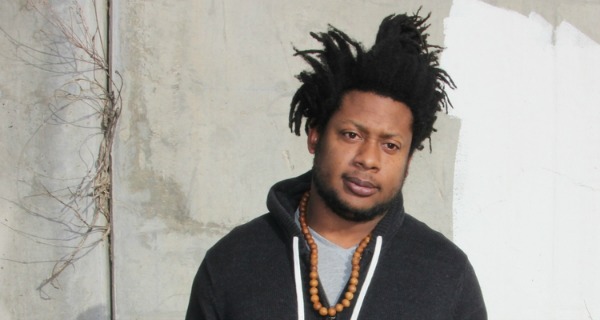
By Hannah Haddadi
It's going to be a big fall for Lighthouse instructor Steven Dunn, whose second novel, water & power, is set to be released from Tarpaulin Sky Press in just a few months. In the book, Dunn, a Navy veteran, uses a mix of voices, documents, and critical explorations to examine military culture and our perceptions of heroism and terrorism. Ahead of the book's release—and Dunn's upcoming workshop here, Intro to Writing the Novel, starting August 16—we asked him a few questions.
Q. Was it a huge jump for you, transitioning from being in the Navy for 10 years to writing novels? When did you know you wanted to be a writer?
A. No, it wasn’t a huge jump, because I’d written two terrible novels during my last five years in the Navy. But it was a huge jump to learn how to write better and be in a supportive community of writers.
Q. Both your first book (Potted Meat) and water & power explore fear, power, and vulnerability. What makes you interested in those themes?
A. Both of those books were inspired from my lived experiences, and once I started writing the small details and the small stories, those larger themes showed up on their own. Before I learned how to write/listen better from (University of Denver professor and Lighthouse instructor) Selah Saterstom, I started with large themes, which stifled my writing. So now, I try not to worry about themes and trust that if I listen well enough to the small stuff, the themes will bloom out of that.
Q. Did you follow the same process to write both novels or did you approach them in different ways?
A. Each book required something different of me. With Potted Meat, I had to do a lot of deep internal listening and to write in a way that kept my adult wisdom/anger/ignorance out of it, to try to focus on the present-tense mess of a growing child. I was also in therapy at the time, which helped me to be more vulnerable so that I could do that type of deep listening. With water & power, I interviewed a lot of people and included their voices in the book. I didn’t want to recreate the same type of military book that uses a singular voice, because I think a lot of military literature is colonialist in that sense, even anti-war novels tend to still be colonialist because of the nature of their singular voice (which is often white, male, and heterosexual).
Q. What advice might you have for someone who is looking to start their first novel?
A. What helped me is what I mentioned above—forgetting about the big ideas and themes and plots and all of that overwhelming stuff that we think makes a “novel," and focusing on writing the small stuff that feels urgent for you. After you do that enough, the novel, or whatever it is, will tell you how it wants to be written.
Hannah Haddadi is a summer intern at Lighthouse.

